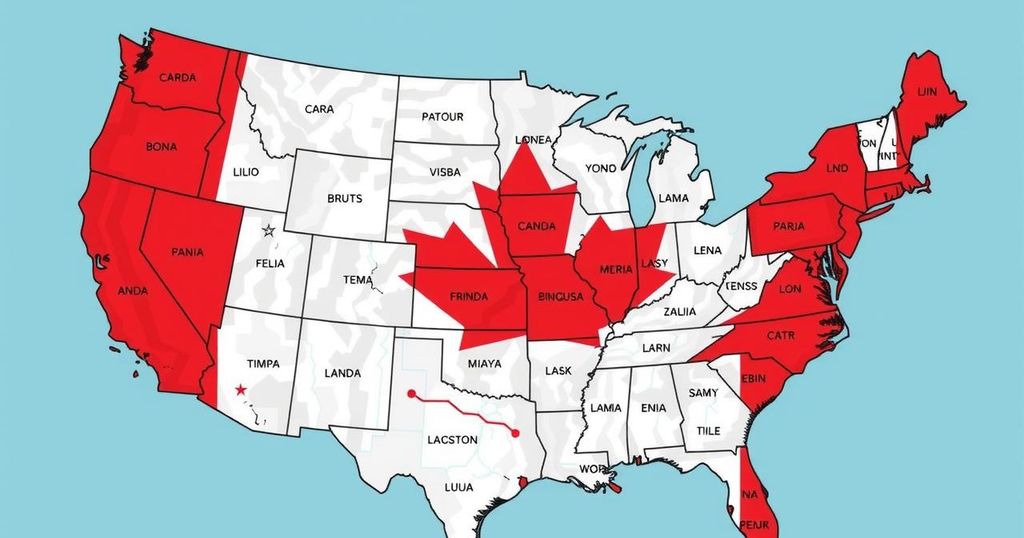Canada as the 51st State: Implications for U.S. Politics

The idea of Canada joining the U.S. as the 51st state poses a substantial threat to the Republican Party, likely resulting in a permanent Democratic majority in the House and the Senate due to Canada’s predominantly left-leaning political culture. This shift would also affect the Electoral College, potentially leading to Democratic victories in key elections. Despite some favorable views toward the U.S., Canada is generally uninterested in statehood, making the discussion largely theoretical.
The notion of Canada becoming the 51st state of the United States has gained traction in political discussions, particularly following recent commentary by Donald Trump regarding annexation. This hypothetical scenario would dramatically reshape the electoral landscape in American politics, predominantly favoring the Democratic Party. An analysis suggests that if Canada were to join the union, it would be allocated approximately 54 House seats and two Senate seats, significantly increasing Democratic representation due to Canada’s historical voting patterns.
The Canadian political climate, with its left-leaning tendencies, would likely result in two-thirds of Canadian votes aligning with the Democratic Party. This shift implies that the political power dynamics in Congress would tilt heavily towards the Democrats, including profound implications for the Electoral College. The resulting 56 electoral votes from Canada would likely contribute to Democratic victories in key presidential elections throughout the 21st century, fundamentally altering the national electoral calculations.
Despite some Canadians viewing the U.S. favorably, the overwhelming consensus remains that a movement towards statehood is far from desirable. Trump’s recent comments have sparked outrage and firm rebukes from Canadian leadership, highlighting the existing tension surrounding trade and national sovereignty. Ultimately, focusing on cooperative relationships rather than divisive rhetoric may prove to be in the best interests of both nations.
The discussion surrounding Canada potentially becoming the 51st state arises from recent remarks made by former President Donald Trump, who has expressed neo-annexationist ideas. The historical context of American expansionism and Trump’s alleged reawakening of such rhetoric invites scrutiny. It is crucial to explore the impact this would have on American politics, particularly an electoral framework historically skewed in favor of the GOP, and how an influx of Canadian voters could alter that balance significantly.
In conclusion, the hypothetical inclusion of Canada as the 51st state would lead to significant shifts in the American political landscape, greatly enhancing the power of the Democratic Party. The increase in representation and electoral votes derived from Canada would solidify an already existing disparity favoring Democrats. While debates around annexation raise eyebrows and require thoughtful consideration of historical context, it is evident that Trump’s ambitions could inadvertently render the Republican Party less viable in future elections.
Original Source: nevadacurrent.com








